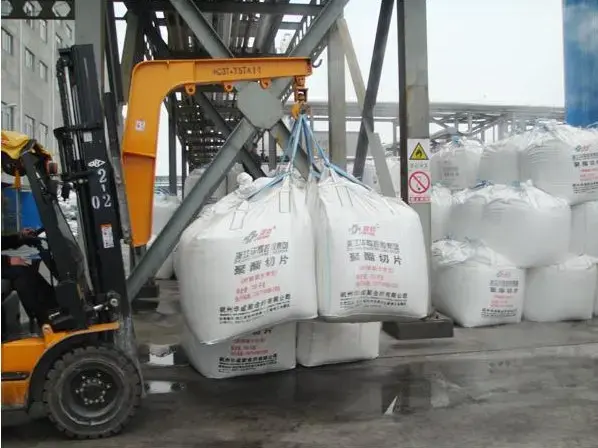In the transportation industry, flexible intermediate bulk containers (FIBC) bulk bags have received widespread attention and application due to their unique characteristics. With the increasing demand for bulk material transportation, these bags play a crucial role in the storage and transportation of chemicals, agricultural products, and building materials. However, in order to ensure the maximum efficiency and safety of FIBC bags during transportation and storage, it is necessary to master the correct maintenance and upkeep methods. Today we will share an article on how to care for ton bags, including the best storage conditions, cleaning methods, and the correct way to check for damage, to help customers reduce losses, improve handling efficiency, and ensure safe operation.
Understanding FIBC Bags
Firstly, we need to understand the basic characteristics of FIBC bags, which is very important. These FIBC bulk bags are typically made of durable and flexible materials, such as polypropylene or polyethylene fabrics. They are mainly designed to load large amounts of bulk materials while maintaining sufficient strength and durability. However, even the highest quality FIBC bags require appropriate care and maintenance to extend the lifespan of ton bags.

Impact of Environmental Conditions on FIBC Bags
In terms of storage, environmental conditions have a direct impact on the lifespan of FIBC bags. The ideal storage environment should be a dry, well ventilated space, away from direct sunlight, etc. Excessive humidity may cause mold to grow inside the bag, while high or low temperature changes may make the material fragile or deformed. In addition, it is advisable to avoid placing heavy objects on the bag or using sharp objects near the bag to prevent puncturing or tearing.
Care and Cleaning of FIBC Bags
Regular cleaning and tidying can also extend the service life of FIBC bags. The cleaning method may vary depending on the material carried in the bag. For example, bags containing food grade products or sensitive materials should be hand washed with mild cleaning agents and water, and then thoroughly air dried. For bags loaded with non food grade products, low-pressure water guns can be used for flushing, but high-pressure water guns should be avoided to prevent damage to the fabric structure. In any case, ensure that the bag is completely dry before storage or reuse.
Regular Inspection of FIBC Bags
In addition to cleaning and storage, it is also necessary to regularly check the integrity of FIBC bulk bags. This includes checking for any visible wear, cracks, or holes, and promptly repairing minor damages to prevent the problem from escalating. If serious damage is found, such as extensive tearing or structural deformation, the use of the bag should be immediately stopped and a new bag should be considered for safety.
Proper Filling and Unloading of FIBC Bags
Furthermore, in practical operation, it is equally important to correctly fill and unload FIBC bags. Overfilling can lead to bag breakage, while incorrect unloading methods can cause material overflow or bag damage. Therefore, following the manufacturer's guidance and best practices is crucial. For example, using appropriate lifting equipment and techniques can prevent bags from being subjected to unnecessary pressure or impact during transportation.
Operator Training for FIBC Bags
We also need to train operators on how to use and maintain FIBC bags correctly. Operators should understand the characteristics of different types of bags, applicable material types, potential problems, and timely solutions to address them. By improving employee awareness and skill levels, losses caused by human errors can be reduced and the smooth operation of the entire supply chain can be ensured.
Importance of Proper Maintenance
Proper maintenance and upkeep are crucial for the performance and safety of FIBC bags. As long as we follow the above guiding principles, users can maximize their investment returns while reducing potential risks and losses. Careful care, whether in storage, cleaning, or daily use, will ensure that these important logistics tools can continuously and effectively serve the global transportation needs of goods.
Post time: Jun-25-2024



